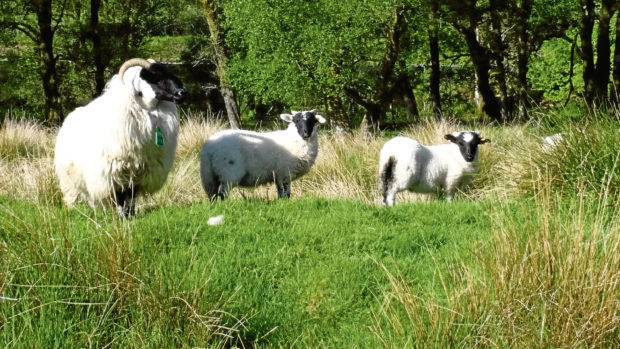I have spent a lot of time in the past year talking about the challenges – and opportunities – facing hill farming and crofting.
This has involved discussing these issues with a wide range of visitors to Kirkton and Auchtertyre farms and me giving a number of presentations away from the farms.
No matter who I am talking to I normally start by highlighting that Scotland is unique in Europe in having between 60% and 70% of its agricultural land under rough grazing. This compares with around 10% in England, just under 20% in Northern Ireland and 25% in Wales.
And across continental Europe, the majority of EU countries have less than 10% of their agricultural land under rough grazing with only Greece and Portugal at around 40% being anywhere close to Scotland.
So a very large proportion of Scottish farming is constrained by poor land. And of course, the farther north and west you go the more rough grazing dominates any one hill farm or common grazings.
This coupled with increasing climate change and associated pests like ticks and liver fluke mean that there are major productivity challenges facing hill farming and crofting.
And with Brexit rapidly approaching – and with each new theoretical scenario suggesting that major changes in support levels are inevitable – then it is easy to think that there may be little future going forward for hill farming and crofting.
But it is important to remember that most, if not all, of the questions being asked about the future viability of hill farming and crofting existed well before Brexit was a twinkle in anyone’s eye. All Brexit has done is bring those questions more to the forefront of people’s minds.
The productivity challenges have also been recognised for a long time and indeed are why we at Kirkton and Auchtertyre are putting an emphasis on such a wide range of potential agricultural solutions.
It is also essential to look at the rough grazing figures from a different perspective. The fact that up to 70% of Scotland’s agricultural land is under rough grazing means that hill farmers and crofters are the principal managers of a huge proportion of Scotland’s agricultural land.
As such they have a key role to play not only in maintaining good quality food production but also in maintaining a wide variety of habitats and wildlife species and in providing a wide range of other public benefits to society.
Key going forward will be ensuring that this is communicated to the wider public.
We at Kirkton and Auchtertyre certainly have a role to play, but there is also a need for all hill farmers and crofters to help raise much greater awareness of what active hill farming and crofting delivers in practice.
- Davy McCracken heads up SRUC’s hill and mountain research centre and Kirkton and Aucthertyre.
